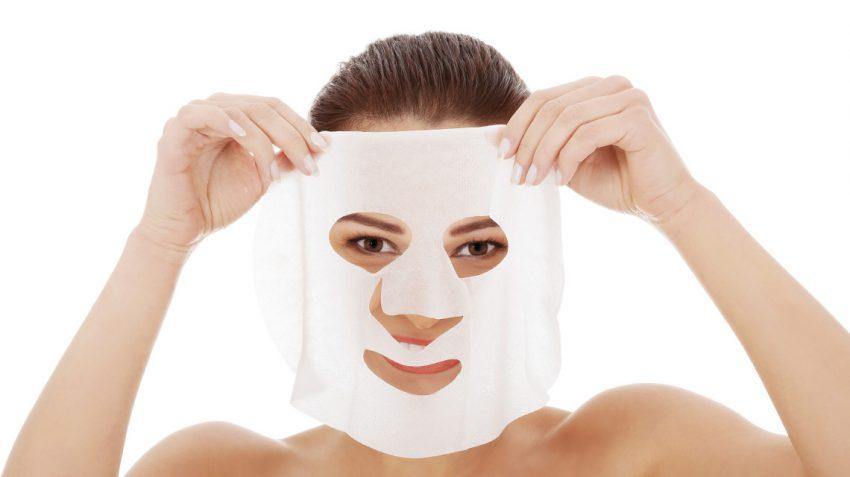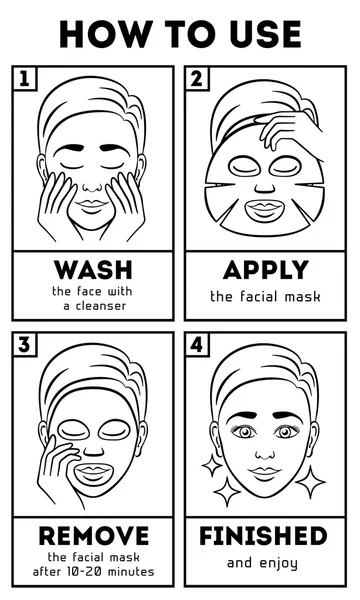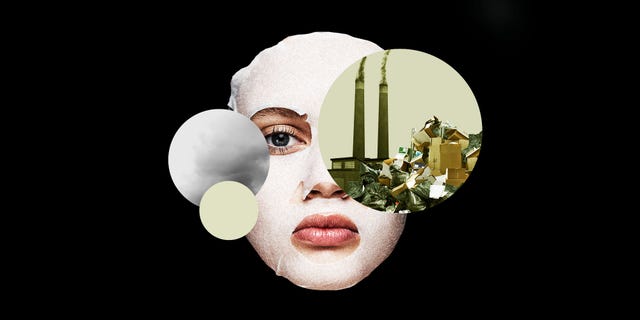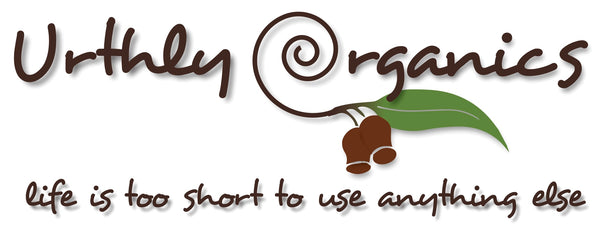
Let’s Face it! We Need to Look to Sustainable
Share
Across the world, beauty and skin care routines are in our everyday lives. But how often do we consider the impacts of our use? With landfills becoming scarce, pollution, and environmental devastation, we forget that what we throw away does not always disappear. Or what we buy does not always fulfill our expectations of being environmental friendly. This series focusses on our choices doing more harm than good.
Within this edition, we focus on the skincare sheet mask phase that cause more harm than good. And we suggest alternatives so you do not miss out on feeling fabulous.
Sheet Masks
The sheet mask is a face-shaped fabric soaked in a solution called serum[1]. The sheet itself is made up of various materials and fibres. Typically, the masks are individually packed in plastic, the sheet is removed and placed onto the face for approximately 20 minutes. Originally being popular in Asia, the sheet mask phenomenon has grown across the world [2]. The popularity of the masks is potentially due to the convenience and feel of the serum.
From the perspective of myself, they are a really fun activity to do with friends. You laugh at how silly you look, while ensuring how nice you skin feels afterwards. However, the little piece of cloth holds conflicting stances in my mind.

Plastic Straws of Skincare
While an enjoyable activity, sheet masks have a dark side. Their disposable nature causes significant environmental concern. The packaging, fibers and serum all have impacts that go beyond the original 20 minutes of use.
To begin, the sheet masks are individually wrapped in plastic. This plastic may contain mixed materials. The plastic can be Red-Cycled. However, the outside is typically thrown into landfill. This is the only piece that is able to be recycled. Any excess serum is also disposed of.
In cases where a mask itself may be cotton, the sustainability of a product can still be a concern[3] . Microplastics/synthetic fibers can be mixed in the cotton to create the sheet mask. In addition to plastics, many sheet mask serums contain non-organic and non-biodegradable ingredients that cannot be composted[4].
To put sheet mask concerns plainly, they are waste in majority of cases, even when alternative approaches are used.

Finding the Alternative
When consuming these products, we need to ensure that we read the ingredients, look for sustainable fiber alternatives, and plastic-free options. At Urthly Organics Headquarters, we have been busy designing an alternative: reusable sheet masks that can be composted at end of life, with a compost-friendly hydrating serum. These will be biodegradable, plastic-free, reusable, compostable, and made from recycled fabrics. We hope to officially release our sheet masks very soon.
Other alternatives to these masks include clay masks, environmentally friendly (including palm free) options, and skincare that does not contain single-use applicators. For example, our Kaolin Clay Masks are meant to last many uses, are packaged in paper, and are completely biodegradable (they are made up of clay and essential oils).

[1] Orgaid, 2021, ‘TOP 10 FACTS YOU NEED TO KNOW ABOUT SHEET MASKS’, Orgaid: https://www.orgaid.com/blogs/news/42212929-top-10-facts-you-need-to-know-about-sheet-masks#:~:text=Sheet%20masks%20are%20face%2Dshaped,nutrition%2Dpacked%20solution%20called%20serum.&text=These%20sheet%20masks%20are%20different,putting%20on%20other%20skincare%20products.
[2] Style Story, 2020, ‘What’s So Good About Sheet Masks?’, Style Story: https://stylestory.com.au/blogs/style-story/what-s-so-good-about-sheet-masks
[3] Brucculieri, J., 2019, ‘Are Your Beloved Sheet Masks Killing The Planet?’, Huffpost: https://www.huffpost.com/entry/sheet-masks-not-environmentally-friendly_l_5c5a033ae4b09293b2092685
[4] Piper, A., 2018, ‘Give a Sh*t: Do Good. Live Better. Save the Planet’, Running Press.
